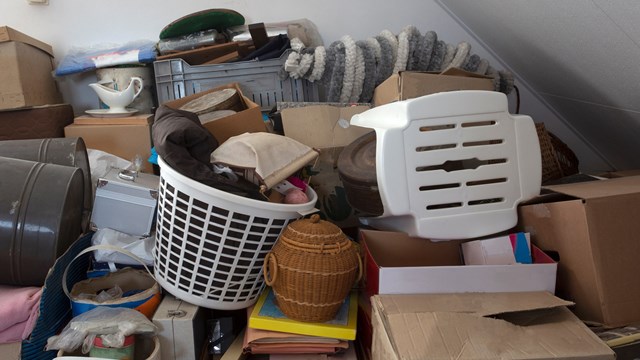
Q. I live in a co-op and my neighbor downstairs from me is constantly smoking. I brought it to the attention of the management and nothing has been done. What are my options as a shareholder? Do I bring legal action against management, or do I take legal action against the shareholder who’s producing all the smoke?
—At My Wits’ End
A. “The City of New York recently enacted Local Law 147-2017,” says attorney Margery Weinstein of the New York firm Ganfer Shore Leeds & Zauderer, “which requires all co-ops and condominiums to adopt and disclose written smoking policies stating precisely where smoking is permitted and/or prohibited. This legislation requires that the smoking policy be provided to all shareholders, tenants, subtenants and unit-owners by no later than August 28, 2018. Notably, the law does not require that co-ops and condominiums prohibit smoking within apartments, nor does it require that any particular smoking policy include specific restrictions, other than that any smoking policy that is adopted must conform to current law (under Local Law 141-2017, smoking is currently prohibited in common areas of all multiple dwellings).
“The questioner’s initial inquiry should be to confirm his/her co-op’s smoking policy to ascertain whether the downstairs neighbor is allowed to smoke within an apartment and is otherwise abiding by or violating the building’s smoking policy. If the co-op has adopted a ‘no-smoking’ policy within apartments, the downstairs neighbor may still have the right to smoke if he or she is a rent-controlled or rent-stabilized tenant who resided in the downstairs apartment prior to the co-op’s adoption of the policy; as such, that neighbor is not required to comply with a newly-adopted smoking policy that differs from the terms of the lease when his or her occupancy began.
“In a cooperative apartment building, the proprietary lease is the primary document governing the rights and obligations of shareholders and the cooperative apartment corporation as to the shareholders’ manner of use of the co-op building and each particular shareholder’s apartment. Most proprietary leases (or the co-op’s ‘house rules’) contain a provision that shareholders shall not permit unreasonable odors to escape into the building’s common areas or into other apartments. When a particular shareholder cannot enjoy the use of his or her apartment due to the action or inaction of either other shareholders or the co-op board (in this instance, due to possible secondhand smoke coming into the shareholder’s apartment and the failure of the management to take corrective measures), the shareholder may have various possible claims.
“The first claim that the shareholder may make is that the secondhand smoke from the downstairs neighbor is a nuisance that infringes on his or her statutory right to a habitable residence (codified in the warranty of habitability under New York Real Property Law Section 235-b), as such smoke creates a dangerous condition that affects the shareholder’s health and safety. In addition, the shareholder may argue that the right to quiet enjoyment, which is a provision commonly found in proprietary leases, has been infringed by the unreasonable odor of secondhand smoke coming into his or her apartment. Although the questioner may have claims against the downstairs neighbor, the ideal legal strategy would be to initially demand that the co-op take steps to remedy the situation, failing which the shareholder may take action against the co-op to enforce his or her rights under the warranty of habitability and/or the right to quiet enjoyment.
“The questioner should begin the process by making a written complaint to the co-op corporation and its managing agent based on a detailed, written record documenting the dates and times when second-hand smoke created a nuisance in the questioner’s apartment. The co-op and its managing agent may request access to further investigate these claims, and the questioner should facilitate such access so that a forceful record can be created. The next step would be for the co-op and/or its managing agent to contact the downstairs neighbor and to require that measures be taken to prevent smoke from drifting out of the smoker’s apartment to other areas of the building, including into the questioner’s apartment unit. If the co-op fails to do so, or if the measures to remediate the secondhand smoke are unsuccessful, then the questioner could try to pressure the co-op to commence legal action against the smoker, possibly by enlisting other shareholders who may also have concerns with second-hand smoke. Lastly, if the co-op refuses to begin legal action, the questioner could commence legal action against the co-op to try to compel the co-op to remedy the second-hand smoke situation, claiming a breach of the warranty of habitability and/or the right to quiet enjoyment.
“Most proprietary leases contain an attorneys’ fees provision, providing that the co-op (as landlord) may recover attorneys’ fees and expenses in the event of a shareholder (tenant) default. Under New York Real Property Law Section 234, such an attorneys’ fees provision would be applied reciprocally, so that fees would be awarded when a shareholder-tenant prevails in a litigation based upon the co-op/landlord’s breach. There is no likely basis for recovering attorneys’ fees against the downstairs neighbor, however, which is one reason that the questioner may prefer to commence legal action, if any, against the co-op.”









Comments
Leave a Comment